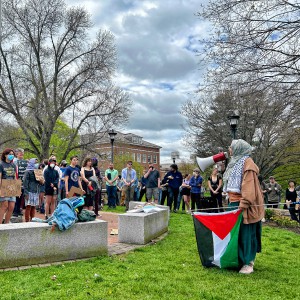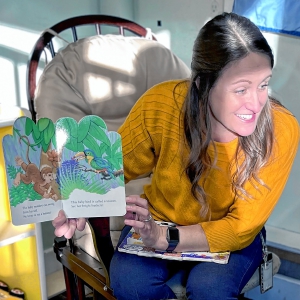In rural Jamaica, Latoya sees education as a way out of poverty
| Published: 04-06-2016 9:34 AM |
(Editor’s note: This is the final installment of Photo Editor Geoff Forester’s series about an annual mission to Chantilly, Jamaica, organized by St. Paul’s in Concord.)
In many ways, Latoya Pryce is a typical teenager. At age 15, she works hard at school and hopes to go to college in a few years. She loves her family, even if little sister Samantha sometimes drives her crazy. She complains about her chores and is obsessed with getting an iPhone or tablet.
She has lots of friends, and a few of the boys would like to be more than friends, but there’s only one she calls “special.” She balances those relationships with her dream to one day leave the economically depressed center of Jamaica and head to America, or Canada, for more opportunity.
That’s where Latoya’s world veers from the average teen, especially those from New Hampshire.
Latoya and her family live in a two-room home in the tiny town of Chantilly, miles from towns like Negril and Ocho Rios, home to world-famous coastal resorts where tourists spend their money.
Latoya’s family – parents Antoinette and Samson Pryce, half-brother Orain, siblings Samantha, 12, Len-Roy, 7, J.J., 4, and toddler Maurai Moses – live in a space no bigger than an average New Hampshire living room. They have no plumbing. They cook in an open fire pit. Clothes are washed in an abandoned well that has algae growing on the surface of the water.
Their porch overlooks the beautiful mountains and valleys of central Jamaica, but closer to home, plastic is strewn about the ground; an open pit is used for burning everything else.
A steel tub for bathing sits against the house near where the giant pig rests, soon to be slaughtered to provide meat for the year. A small plot of family land is used for growing yams and other vegetables.
Article continues after...
Yesterday's Most Read Articles
 Hopkinton tries to nab out-of-town trash bandits
Hopkinton tries to nab out-of-town trash bandits
 UNH faculty and students call on university police chief to resign following his alleged assault on a student
UNH faculty and students call on university police chief to resign following his alleged assault on a student
 Steeplegate project to reopen to public comment as developer seeks to reduce required parking
Steeplegate project to reopen to public comment as developer seeks to reduce required parking
 Monitor Way developer seeks $4.67 million from city for proposed new road
Monitor Way developer seeks $4.67 million from city for proposed new road
 Northeast Coffee Festival comes to Concord this weekend
Northeast Coffee Festival comes to Concord this weekend
 NH Senate panel frowns on bill to ease vehicle inspection requirements
NH Senate panel frowns on bill to ease vehicle inspection requirements
They are among the 1.1 million Jamaicans, about 40 percent of the country’s population, living in poverty.
Each day, Latoya goes to Homewood school in the next town of Christianna, an 8-mile trek by taxi. She hopes to get into prep school and then Knox College to study hotel management.
Last year, she received one of the very first scholarships provided by Joshua Totten-Greenwood, who was part of the first outreach mission to Jamaica from St. Paul’s church in Concord.
Now a Nashua teacher, Totten-Greenwood has rallied colleagues and parishioners of St. Paul’s to donate to the scholarship fund for Chantilly-area high school students. The $250 scholarship pays for a year’s schooling. But the family still needs to come up with enough money to pay the 82 cents for each taxi ride. It might not seem like a lot, but it adds up fast.
Latoya typically gets up at 6 a.m. to make the bed she sleeps in with Samantha. She sweeps the floor before heading on a mile-and-a-half walk to get water from the community cistern for the morning dishes and bath, all in time to get the taxi at 7:15 for school. She gets back from school at 3:30 p.m., in time to help bring in the laundry and fetch more water.
Even at her young age, Latoya feels the pressure of getting things done for her family and the expectations of others – including her great aunt Daphne.
“She is there for me. She always asks, ‘Is Latoya okay?’ ” she said. “I don’t want to disappoint her. She has helped with my education, too. She helps me.”
Latoya has good reason to watch out for what she does; in Jamaica, family can be a tough judge.
A couple of years ago, Latoya was heading down a familiar path for youth in Jamaica. School was not a priority. She grew sullen and withdrawn in her early teenage years. She even had to redo fifth grade and delay her G-Stat test, which determines the hierarchy of the strict educational system of Jamaica. Only the chosen few get ahead and go to college.
Latoya battled through and took her test the next year and got into the better-than-average Homewood Technical High School. Along the way, Daphne saw her in a different light and began to see a bit of herself in Latoya.
She, too, had an aunt when she was young who planted the seed of getting a good education to get ahead. She later moved to England with her husband, Rue, and got her degree in education before moving back home to Jamaica 35 years later, relatively weathy and educated.
Now Latoya is more determined to go to school and get ahead.
As Elizabeth DeNauw of Concord said about girls Latoya’s age: “It must be difficult living in that environment when you get to a certain age of when you are really aware of it and know this can be your life if you decide not to do something differently.”
Latoya now has a determination to do something different.
After her chores are done and the family has had their dinner, Latoya gets some sleep, then wakes up at midnight to study by candlelight. It is a quiet time when she can concentrate while her parents sleep nearby.
“I know I can’t get 70s or 80s in any subject, I have to get 100s or 90s or I don’t have a chance,” she said. “I can focus at any time, but it helps when it is quiet.”
But sometimes, even with that determination, she falls short. Teachers assign projects that require travel by taxi another 8 miles on weekends for supplies and access to internet cafes. The extra money can prove too much, and when she can’t get there, she gets a zero on the project. “If I don’t have the money, I can’t go.”
That’s when $1.64 for a taxi ride can become a hurdle to a lifetime of goals.
For now, the plan is to get her education and move away to get work, just like her great aunt did years ago. And she doesn’t think another part of Jamaica is far enough away.
“I want to go to Canada or America,” she said. “I want to work and send money back to help my parents and my family. I want to help them.”
But she feels the pressure.
“I’m trying to do my best to please my Auntie and my parents and even the people of New Hampshire because of their help they have given me,” she said.
“But I ask God to help me cause I don’t want to let people down, ’cause I know they are all looking to me – so I say God help me.”
(Geoff Forester is the Monitor’s photo editor.)


 Opinion: Invest in child care for NH families
Opinion: Invest in child care for NH families Opinion: The slippery slope that should scare us? The trend of legislatures getting involved in personal medical decisions.
Opinion: The slippery slope that should scare us? The trend of legislatures getting involved in personal medical decisions. Opinion: Protecting NH from PFAS
Opinion: Protecting NH from PFAS Opinion: Thank goodness for New Hampshire teachers
Opinion: Thank goodness for New Hampshire teachers
